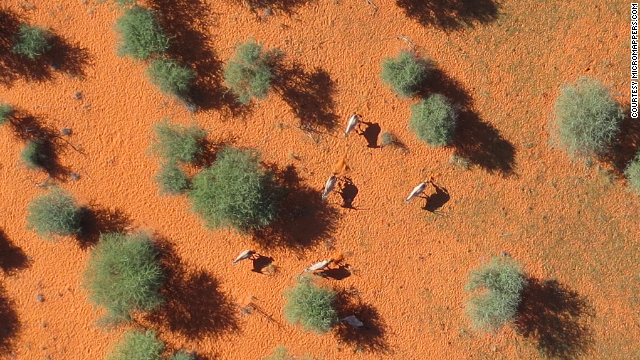Where's Waldo? But for Science – How Online Volunteer Programs can be used in Occupational Therapy
http://www.cnn.com/2014/09/30/opinion/sutter-wildlife-crowdsource/index.html?hpt=hp_t3
This article had some great implications for occupation-based therapies. Possible assignment for fieldwork students at bottom!
ARTICLE: Where’s Waldo…but for science” by John Sutter.
The article explains how an innovative program in Africa is being used to prevent poaching of rhinos and other wildlife, using a Where’s Waldo? approach. A drone takes pictures of the land of a wildlife refuge, and then the program coordinators has online volunteers sift through the pictures and circle any animals they find. They are called “digital rangers” and it was a way to quickly do a land survey.
My favorite part was the picture and caption. It shows an overhead land shot, with five clearly defined animals in the picture. The caption says "There are five oryxes in this photo. Can you spot them? If not, please don’t volunteer with this project.” It made me laugh. I attached the photo here, which came from the linked article.
The article made me think about how being a “digital ranger" would be a fabulous occupation-based method of working on important skills. While the book "Where’s Waldo?" may be appealing and appropriate as a play-based modality for many of our kids, it can be insulting to some of our older clients, or in my case, overwhelming.
However, as an adult, working on important skills via contributing to an online volunteer project aimed at conserving wildlife? Pretty Awesome. You get to work on problem solving, and scanning, and attention, and figure/ground, and all sorts of great yet often challenging skills, yet in a highly motivated state. (And could be done with the occupational therapist present to ensure accuracy!)
I also think many of our kids would prefer this type of task to the Waldo book, as primarily the kids who like Where’s Waldo? are the ones who least need to work on those skills.
Unfortunately, I believe this particular example was not open to the public, but the implications are far-reaching in occupational therapy. I’m realizing there are probably tons of projects that request online volunteers. For projects that allow the volunteers to spend as much or as little time as they want, the OT could sign up as an online volunteer and then work with appropriate clients in short bursts of time. I think Google Earth may have some.
Also, www.freerice.com is a brilliant site that allows you to gain knowledge while simultaneously giving to charity. For example, if you play their vocabulary games, each correct answer gives a donation of a few grains of rice to a charity. It can add up, and they have expanded to have many different learning games. Check it out.
Can any of you think of sites that ask for online volunteers? Or sites that allow you to gain knowledge while donating to charity? There are just so many possibilities. Maybe one of these days a fieldwork student could spend some time searching for online volunteer and charity opportunities and post a list to OT Connections. I was thinking it might be a great task for patients who have had traumatic brain injuries.
So……OT students or occupational therapists….assignment. Find online volunteer and online knowledge/charity sites, and share them!


